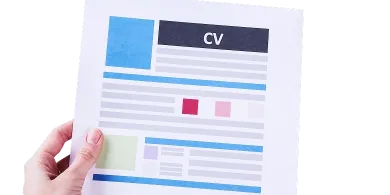Table of contents

A curriculum vitae, most known as a CV, overview an individual’s experience and employment history. This document helps recruiters find the best candidates among a vast number of applicants for the position.
CVs are crucial indeed, and one should have well-submitted documents within reach. It is necessary to note that some companies ask job hunters to send curriculum vitae as this is an excellent opportunity to check applicant’s intelligence and attentive behavior.
Many job hunters ignore CV or confuse it with resumes; it is essential to remember that these two documents are vital and not interchangeable worldwide. A resume is a widespread document in the US and Canada. Still, an American/Canadian job seeker sends CVs if he wants to apply for an academic or scientific-oriented position.
On the contrary, the CV format is a standard document for job seekers in the UK, European countries, the Middle East, Africa, Asia, and New Zealand. You may think that you will never have to work overseas, which is why you do not need a curriculum vitae, but nobody knows how matters will go.
There are more unemployed, recent graduates, and expert professionals searching for work than there are positions available. Modern professional CV writers explain that Curriculum Vitae is a kind of a personal sales document, and that is why a job hunter must work on this document and make it the best one can.
In general, the role of a CV is analogous to the purpose of a resume: after HR managers receive it, they are more likely to copy its content and enter it into the database. The thing is that companies receive hundreds of CVs, and the only way to find a CV that matches the job is to use special screening software. With the help of applicant tracking programs, they search for relevant words and find the best candidates.
Well written CV is a chance to attract the attention of prospective employers and differentiate oneself from other applicants. Though the software selects the most relevant applicants, HR managers read those CVs very attentively to invite the most qualified candidates to an interview.
In other words, a curriculum vitae is a kind of admission ticket or a passport. The document contains vital information about knowledge, experience, and skills and indicates the candidate’s potential.
Indeed, this is a basic resume and CV difference. A job seeker should pay attention to the requirements of the particular job announcement to submit the proper documentation.

 It is not a secret that most CVs are being scanned – that is why it is necessary to have clear, concrete, complete, and full employment and educational details documents.
It is not a secret that most CVs are being scanned – that is why it is necessary to have clear, concrete, complete, and full employment and educational details documents.
As our CV editing experts say: “Your CV should contain all the latest information about career and the job duties; you can use this as a guide to describe your experience. But remember that CV should not exceed 3 pages in length.”
If you are writing an introduction as a headline to your CV, make sure you make it relevant to the chosen position, especially if you are applying for two different jobs.
Here are a few more tips:
Do not be afraid to include a paragraph with hobbies and interests if they are worth discussing and relevant to the job position. If you like being a member of a big team or can find a common language with different people, add this to your CV – use every detail in your life and career to boost chances to attract the recruiters.